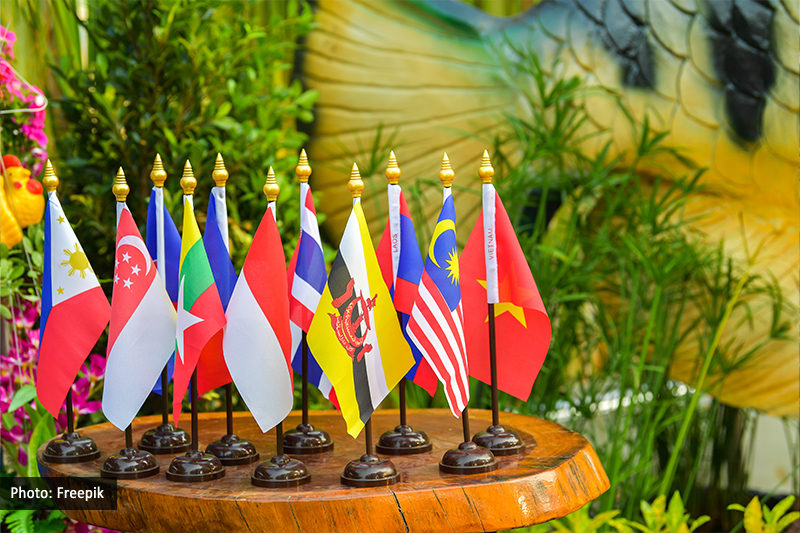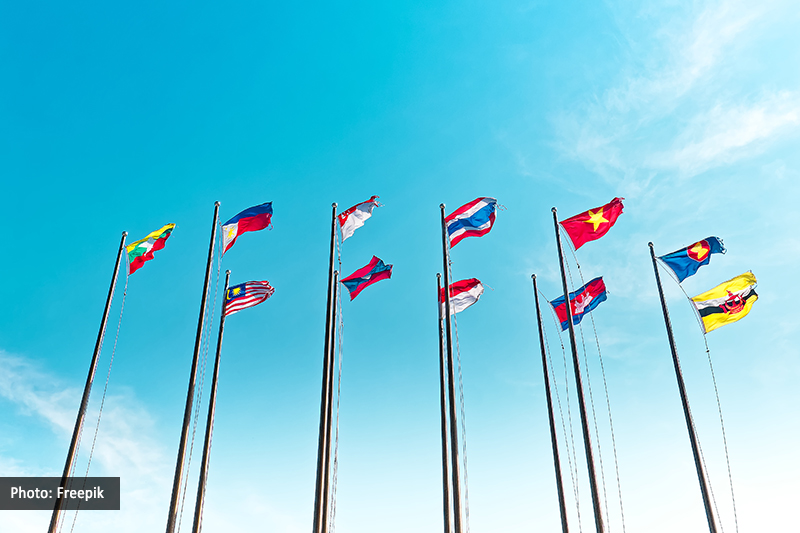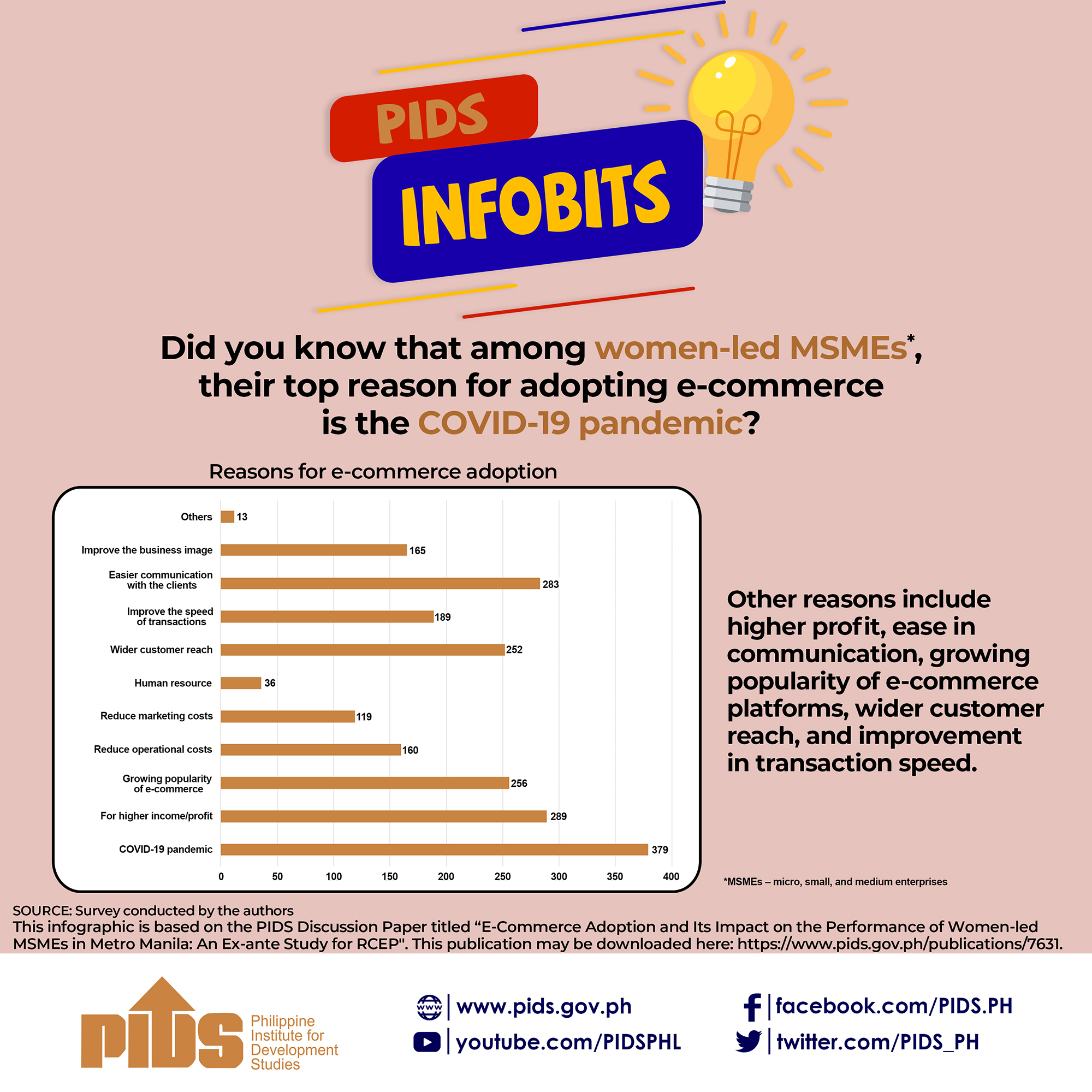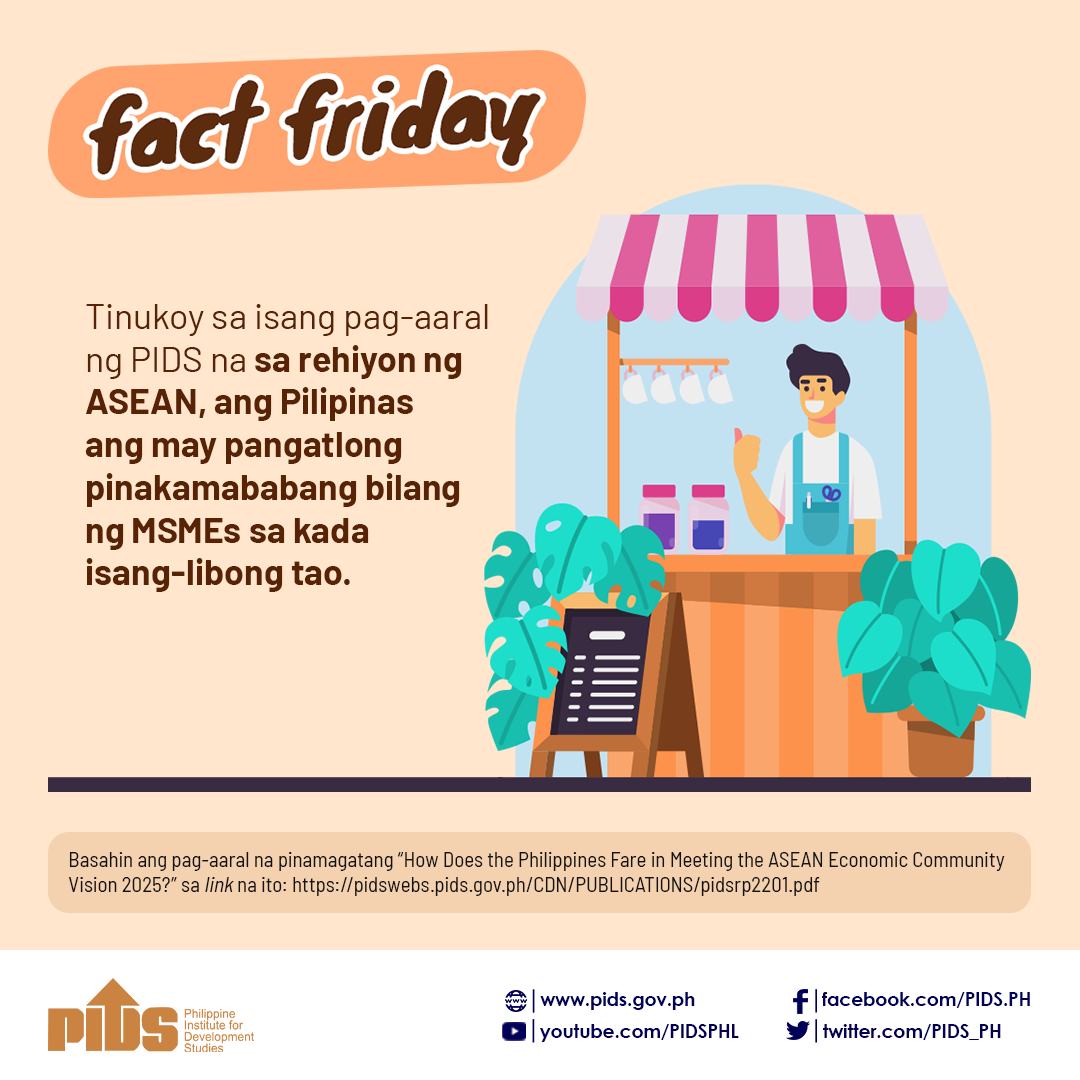
The Philippines needs to improve [its] performance in the areas of competitiveness, innovation, and inclusive participation.
This was pointed out by Department of Trade and Industry Assistant Secretary Allan Gepty during a recent webinar organized by state think tank Philippine Institute for Development Studies (PIDS). The webinar featured the PIDS study “How Does the Philippines Fare in Meeting ASEAN Economic Community Vision 2025?”
According to Gepty, the Association of Southeast Asian Nations (ASEAN) is a top trading partner of the Philippines, with exports amounting to USD 10.2 billion in 2020. During the COVID-19 pandemic, the region continued to be the Philippines’ trading partner.
“ASEAN could not afford to embrace an inward policy…There is a need to further strengthen economic integration and collaboration with other trading partners. This approach will help mitigate the pandemic’s economic impacts and disruptions to people’s health and livelihood and economic activities in the region,” he said.
Gepty, a discussant at the webinar, said that ASEAN was able to further concretize the individual efforts of member-states, ASEAN sectoral bodies, and dialogue partners toward ensuring the smooth flow of essential goods and minimizing disruptions in the regional bloc’s supply chains.
ASEAN also provided an avenue for member-states to discuss and recalibrate their respective policies to strengthen supply chains under the new normal and promote complementarity in the region’s supply chain connectivity.
These efforts complement the country’s goals outlined in the Philippine Development Plan “to sustain a sound, stable, and supportive macroeconomic environment”.
Together with the Inclusive Innovation Industrial Strategy, the DTI official said that the department is implementing programs to support local industries and businesses to innovate, be competitive, and participate in the global value chains. These include shared services facilities, ease of doing business, doing business in free trade areas, the Philippine Halal Export Development and Promotion Program, Philippine Export Competitiveness Program, the Regional Interactive Platform for Philippine Exporters, SheTrades Philippines Hub, and Startup Pilipinas.
Alongside these programs are several economic reforms that have been undertaken, such as the passage of Republic Act 11534 or the Corporate Recovery and Tax Incentives for Enterprises Act. There are also pending amendments in the pipeline, such as the Public Service Act, Foreign Investments Act, Retail Trade Liberalization Act, and Internet Transactions Act. “Once passed, these laws could encourage more investments in the country,” Gepty said.
On research and development (R&D), Gepty said that the country has a strong legal and institutional framework. The DTI has established regional inclusive innovation centers and innovation technology support offices in various state universities and research institutions supporting the country’s R&D activities.
On e-commerce, the Philippines has recorded 12 million new digital consumers since the start of the pandemic.
“I hope these updates will be relevant in assessing the country’s performance as we work toward the realization of the 2025 ASEAN Economic Community Blueprint,” he concluded. ###
Watch the video of this seminar at https://www.facebook.com/PIDS.PH/videos/688499465431819 or https://www.youtube.com/watch?v=q6vbtmQjbns.
For more videos of PIDS events, go to https://www.pids.gov.ph/videos.
This was pointed out by Department of Trade and Industry Assistant Secretary Allan Gepty during a recent webinar organized by state think tank Philippine Institute for Development Studies (PIDS). The webinar featured the PIDS study “How Does the Philippines Fare in Meeting ASEAN Economic Community Vision 2025?”
According to Gepty, the Association of Southeast Asian Nations (ASEAN) is a top trading partner of the Philippines, with exports amounting to USD 10.2 billion in 2020. During the COVID-19 pandemic, the region continued to be the Philippines’ trading partner.
“ASEAN could not afford to embrace an inward policy…There is a need to further strengthen economic integration and collaboration with other trading partners. This approach will help mitigate the pandemic’s economic impacts and disruptions to people’s health and livelihood and economic activities in the region,” he said.
Gepty, a discussant at the webinar, said that ASEAN was able to further concretize the individual efforts of member-states, ASEAN sectoral bodies, and dialogue partners toward ensuring the smooth flow of essential goods and minimizing disruptions in the regional bloc’s supply chains.
ASEAN also provided an avenue for member-states to discuss and recalibrate their respective policies to strengthen supply chains under the new normal and promote complementarity in the region’s supply chain connectivity.
These efforts complement the country’s goals outlined in the Philippine Development Plan “to sustain a sound, stable, and supportive macroeconomic environment”.
Together with the Inclusive Innovation Industrial Strategy, the DTI official said that the department is implementing programs to support local industries and businesses to innovate, be competitive, and participate in the global value chains. These include shared services facilities, ease of doing business, doing business in free trade areas, the Philippine Halal Export Development and Promotion Program, Philippine Export Competitiveness Program, the Regional Interactive Platform for Philippine Exporters, SheTrades Philippines Hub, and Startup Pilipinas.
Alongside these programs are several economic reforms that have been undertaken, such as the passage of Republic Act 11534 or the Corporate Recovery and Tax Incentives for Enterprises Act. There are also pending amendments in the pipeline, such as the Public Service Act, Foreign Investments Act, Retail Trade Liberalization Act, and Internet Transactions Act. “Once passed, these laws could encourage more investments in the country,” Gepty said.
On research and development (R&D), Gepty said that the country has a strong legal and institutional framework. The DTI has established regional inclusive innovation centers and innovation technology support offices in various state universities and research institutions supporting the country’s R&D activities.
On e-commerce, the Philippines has recorded 12 million new digital consumers since the start of the pandemic.
“I hope these updates will be relevant in assessing the country’s performance as we work toward the realization of the 2025 ASEAN Economic Community Blueprint,” he concluded. ###
Watch the video of this seminar at https://www.facebook.com/PIDS.PH/videos/688499465431819 or https://www.youtube.com/watch?v=q6vbtmQjbns.
For more videos of PIDS events, go to https://www.pids.gov.ph/videos.












